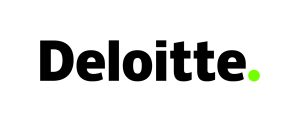Tokenization: The natural evolution of the alternative investment fund industry
Topics: Alternative Investment, Digital Assets
Introduction
Tokenization is emerging as a transformative force in the world of finance, particularly within the alternative investment fund industry. Defined as the process of digitally representing asset ownership and attributes through blockchain-powered smart contracts, tokenization is distinct from the world of cryptocurrencies. While crypto assets are digital currencies or tokens meant for general circulation and trading, tokenization focuses specifically on leveraging blockchain technology to improve operational models, enhance efficiency, and create new opportunities for traditional finance systems.
Blockchain technology forms the backbone of tokenization, providing a decentralized, immutable, and transparent ledger for asset management. Unlike the traditional fragmented workflows often encountered in the alternative investment fund space, tokenization uses automation to streamline the lifecycle of investments—from order processing and settlement to ownership tracking. This approach promises to disrupt conventional fund management models by offering a unified platform capable of significantly reducing inefficiencies and friction.
In recent years, numerous financial institutions have expressed optimism about blockchain and tokenization. Prominent asset managers and banks have acknowledged that these advancements hold the power to redefine traditional finance systems. Indeed, tokenization offers opportunities for fund managers, investors, and service providers alike by addressing industry pain points and introducing innovative solutions.
Moreover, tokenization is far more than a theoretical concept; it is already being applied in real-world scenarios. Two primary use cases stand out:
- Fund distribution: Tokenized shares or interests enhance accessibility and simplify the distribution process, especially for alternative investment funds.
- An alternative to traditional fundraising mechanisms: Tokenization unlocks new methods for raising capital, allowing for fractionalized ownership and broader participation from smaller investors who were previously excluded due to high investment thresholds or category of assets.
Benefits of tokenization
Tokenization brings a multitude of benefits to the alternative investment fund industry. From managing a wider range of investors to improving data management, its impact is both profound and multifaceted.
Below are four key advantages:

- Extended investor range
Historically, alternative investment managers have been accessible only to a limited number of high-net-worth individuals and institutional investors due to operational constraints and hefty investment floors. Tokenization democratizes access by enabling an easier way to manage a higher number of investors. Smaller investors can now participate in funding opportunities without the need for multi-million-dollar commitments but with the minimum amount required for professional investors. This transformation not only expands the investor pool but also allows fund managers to broaden their capital base.
- Enhanced liquidity
Liquidity has traditionally been a challenge for alternative investment funds, where exit options are limited before the investment or fund’s lifecycle concludes. Tokenization improves this on multiple fronts:
- Secondary marketplaces: Tokenized funds facilitate the creation of secondary markets, simplifying the process for investors to sell their interests to others. This capability offers exit possibilities mid-term, reducing the rigidity of traditional fund models.
- Capital call automation: Tokenization could enable automated capital calls, removing a significant bottleneck for asset managers. By streamlining these transactions, fund managers gain clarity on cash flows and reduce reliance on costly bridge financing.
- Collateralization opportunities
Tokenized assets benefit from blockchain-enabled provenance and transparency, making them highly suitable for collateralization. Accurate and immutable ownership records provide confidence for lenders or institutions leveraging tokenized interests as collateral. This feature enhances liquidity by offering new financing pathways through collateral-backed lending.
- Improved data management
Blockchain technology’s capacity for data standardization, mutualization, and process automation is transformative for fund managers and investors alike. Through shared access to on-chain records, tokenization simplifies administration and enhances operational efficiency. Asset ownership can be clearly defined, and transfer processes automated, reducing both time and costs while providing clarity to all stakeholders. Fund managers can replace outdated manual workflows with streamlined processes, thus modernizing their operations.
“Tokenized assets benefit from blockchain-enabled provenance and transparency, making them highly suitable for collateralization. Accurate and immutable ownership records provide confidence for lenders or institutions leveraging tokenized interests as collateral. This feature enhances liquidity by offering new financing pathways through collateral-backed lending.”
Luxembourg: A jurisdiction of choice for tokenization
Already positioned as a global hub for the alternative investment fund industry, Luxembourg is now extending this leadership into tokenization. A combination of forward-thinking regulatory frameworks, an established financial ecosystem, and strategic governmental backing ensures that Luxembourg is well-equipped to become a leader in blockchain-powered solutions for fund management.
- Legal framework
Luxembourg is at the forefront of adopting legislative frameworks that support the use of blockchain technologies in the financial sector. The country has enacted laws enabling financial institutions to hold securities accounts and register them using distributed ledger technology (DLT). The Luxembourg regulator, the Commission de Surveillance du Secteur Financier (CSSF), provides clear guidance, offering fund managers the confidence to embrace tokenization under a well-defined structure.
- Experience and ecosystem
As a global leader in alternative investment funds, Luxembourg has a robust infrastructure encompassing fund administration, custody, and transfer agency services. This ecosystem is readily adapting to tokenization, providing service providers and managers with access to the tools and expertise necessary to succeed in this space. With its experience handling complex fund structures and cross-border investments, Luxembourg offers an ideal foundation from which to seamlessly integrate tokenized products.
- Political will and commitment
Luxembourg’s commitment to innovation in finance is evidenced by its active promotion of digital assets. The government recognizes the potential of tokenization to modernize the investment fund industry and is actively supporting initiatives that place the country at the forefront of this transformation. Whether through targeted regulatory developments or industry collaborations, Luxembourg is capitalizing on its strengths to serve fund managers embracing tokenization as part of their strategy.
Conclusion
Tokenization represents the future of finance, offering a transformative way to enhance accessibility, liquidity, efficiency, and scalability in alternative investment funds. By leveraging blockchain technology, fund managers can overcome traditional limitations while creating opportunities for investors across the spectrum.
Luxembourg, with its proven track record in alternative investments and a forward-thinking approach to blockchain adoption, emerges as prime jurisdiction for managers seeking to pioneer tokenized fund structures. Its combination of regulatory clarity, an established ecosystem, and governmental commitment positions it as a leader in the digital transformation of finance. For asset managers, distributors, and service providers considering this transformation, Luxembourg offers both the necessary tools and the expertise to thrive in this future-forward industry.
Authors

Vincent Martin
Managing Director
Deloitte Luxembourg

Guillaume Beernaerts
Senior Manager
Deloitte Luxembourg
Search posts by topic
Advisory (7)
Alternative Investment (24)
Alternative investments (3)
AML (1)
Art (1)
Asset Management (27)
Banking (16)
Capital Markets (1)
Compliance (1)
Crypto-assets (3)
Digital Assets (3)
Digital banking (6)
Diversity (7)
EU (6)
Family Businesses (4)
Family Offices (2)
Fintech (10)
Fund distribution (22)
Governance (8)
HR (9)
ICT (1)
Independent Director (5)
Insurance (2)
Internationalization (1)
LATAM (9)
Legal (10)
Private Equity (4)
Regulation (1)
Reinsurance (2)
RRHH (9)
Sustainable Finance (23)
Tax (15)
Technology (6)
Transfer Pricing (2)
Trends (18)
Unit-linked life insurance (6)
Wealth Management (12)


